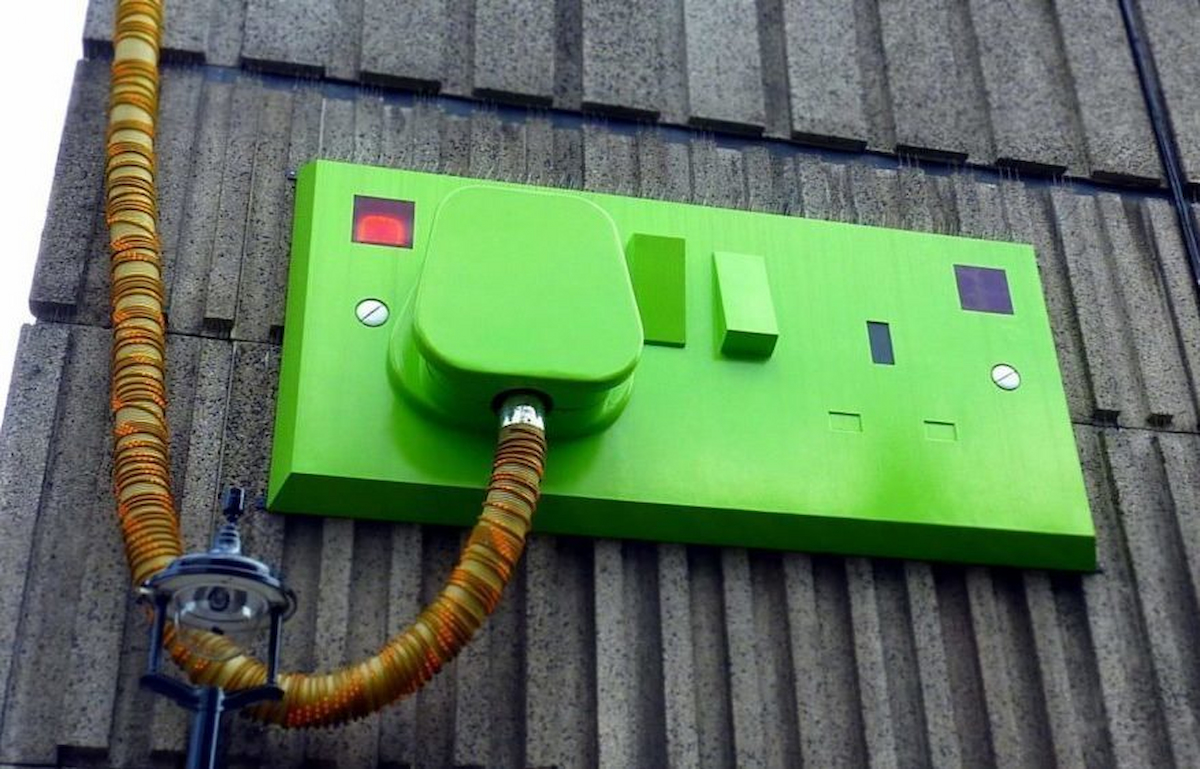Changing your energy supplier is one of the most impactful ways in which you can further reduce your carbon footprint and potentially your costs. Recent official reports in the UK, make clear the fact that your electricity supply is directly related to your carbon footprint. This considers solely electricity generation, leaving aside transmission and/or distribution to your building or office.
Different sources of energy generation will have higher or lower carbon footprint per kWh generated. Also, the average Micro Business (Micro-entities) in the UK has a consumption of 5 000 – 15 000 kWh per year. The table below shows roughly the average emissions per kWh using different energy sources for electricity generation.
| Non-renewable – Conventional Fuels | Kg CO2e per kWh | |
|---|---|---|
| Gaseous | LNG, LPG, Natural gas, etc. | 0.2083 |
| Liquid | Diesel, oil, petrol, aviation fuel, etc. | 0.2671 |
| Solid | Coal, Solid petroleum | 0.3500 |
| Renewable – Biofuels and Wind | Kg CO2e per kWh | |
|---|---|---|
| Gaseous | Biogas, Landfill gas, etc. | 0.00021 |
| Liquid | Bioethanol, Biodiesel, etc. | 0.0024 |
| Solid | Wood log, chips and pellets, etc. | 0.0140 |
| Wind | On and Off shore respectively | 0.0012 – 0.0015 |
These numbers are hard to understand at first glance. Let’s assume your business consumes 10,000kWh of energy a year. In the graph below, we can see what the annual emissions would be for each of the fuel types. As you can see, renewable sources release far less CO2.


Another way of looking at your consumption and emissions is trying to understand what is the associated kWh/year consumed per type of office equipment. The following table shows some average capacity and daily usage:
| Office Equipment | Capacity (Watts) | Usage (Hours / day) | Energy consumed yearly (kWh / year)* |
|---|---|---|---|
| Desktop Computer | 150 | 6 | 230 |
| Laptop | 50 | 6 | 77 |
| Wifi Router | 8 | 24 | 49 |
| Immersion heater | 3000 | 1 | 768 |
| Phone charger | 5 | 2 | 2.56 |
As a commercial tenant, you want to be sure that your activities are being implemented following sustainable trends and consciousness for carbon emissions to achieve net zero. To be able to switch to a more sustainable energy supplier, you first need to find out the following:
Know your current energy supplier and what is their energy source (fuel mix) for electricity generation.
The first thing you need to do is to know who your supplier is. Doing this is easy, simply contact your local Distribution Network Operator (DNO), tell them your postcode and address, and they will let you know who is your energy provider. Now that you know who your supplier is, the next step is to look at their fuel mix disclosure to see which sources are being used to generate and/or purchase the energy they sell you.
You can view the comparison of the UK domestic electricity suppliers fuel mix and see the carbon emissions of the generation of the electricity you are purchasing. Analysing this is key so you can make a much more informed decision about switching to a more sustainable supplier.
Now that you know that your existing supplier is not renewable you might want to check for more sustainable options, however, before doing so you need to review in detail your tenancy agreement to see if you are legally allowed to make the change.
Are you legally allowed to change energy suppliers under your current tenancy agreement?
There are at least two legal scenarios surrounding the possibility of switching energy supplier:
You are the one paying the electricity bill
According to the UK´s consumer protection law, if you are a commercial tenant and you are directly paying for the electricity bill, you are legally entitled to change your energy supplier. Ofgem’s advice on how to switch suppliers as a tenant says that a “default supplier clause” in your tenancy agreement allows your letting agent or your landlord to have the final decision on hiring a preferred energy supplier regardless of your preference. However, under this situation, you can legally request the change even if your landlord has told you that you are not allowed to do so.
If this is your case, it’s simple, review the advice of the Office of Gas and Electricity Markets on how to start the process of switching suppliers.
You are NOT the one paying the electricity bill
By not paying directly for electricity you are in an unfavourable position to change your energy supplier. This is common if your rent includes heating and electricity. Most likely, your landlord is the one paying for the electricity and the change will depend on his will.
Changing your tenancy agreement, to allow you to be the electricity payer, is hard because it requires a renegotiation on which both you and your landlord have to agree. You can either try and do this mid-contract or wait for the end of the agreement to renegotiate a new one. In this context, it is important that you check for a “default supplier clause” in your agreement because this would make it difficult to change it.
We advise you to get legal support to determine all possible options. For example, we know that on grounds of discrimination it is possible to present a case to change an agreement. In case you can prove that your business is being significantly affected, financially and/or reputationally, for not being able to switch electricity suppliers, we advise you to approach a legal advisor to see if a case can be made under this argument. Some experts argue that your landlord can make “reasonable efforts” to not damage your business.
I am a commercial tenant in a multiple unit commercial building.
In this case you will probably have it more difficult to change suppliers if the commercial building is being supplied electricity by only one company. As in the previous case, but perhaps grouping with the other tenants to have a sound influence, you can negotiate with your landlord on the grounds that a default supplier is affecting everyone’s business either by costs or reputation.
Look for the best option and tariff scheme
Suppliers that use renewable fuel mixes are commonly referred to as “green” suppliers. Green supplier options are becoming more common and in demand, as already in 2019 the government announced its intention to reduce its emissions to a minimum by 2050.
Because of this, today it is easy to find 100% renewable fuel mix energy providers. In addition to finding the right supplier, you should see their tariffs scheme and look for their “green” tariff. A green tariff means that your supplier commits to either use renewable energy sources on their fuel mix or to invest, on your behalf, in environment protection or climate change mitigation programmes.
Some “to know” Green energy suppliers in the UK:
Bulb
This company is currently trending because it is dedicated only to green energy, has a very good customer service and its prices are not the highest.
- Accredited renewable fuel mix of 100% Green electricity.
- Accredited 10% green gas with the 90% remaining offset by carbon emissions reduction initiatives making it 100% neutral.
- The only tariff is “Green”, so not much to think about.
- More than 86% of its customers rated the company “Excellent” (5 out of 5 stars) in Trustpilot.
- Get a quote!
Octopus Energy
Octopus is the company with the best customer service. It is not solely dedicated to green energy but has a tariff that considers 100% renewable sources for electricity generation.
- It has a satisfaction rate of 91% on Trustpilot, being this the highest among energy suppliers.
- Accredited renewable fuel mix of 100% on its “Super-Green” Tariff.
- They make sure that the emissions sourcing and producing gas are offset.
- Get a quote!
Green Energy UK
Green Energy is interesting because it is the only one that offers gas and electricity from 100% renewable sources. The customer service is really good as well, but the prices are high because they are exempt from the Ofgem price cap. T3 magazine has called it the only truly Green energy supplier in the UK.
- 100% renewable sources for the production of its gas and electricity.
- Good customer service with 4.5 out of 5 stars on Trustpilot.
- 38% higher prices when compared with other green suppliers.
- Get a quote!
NPower: The only Carbon Trust Standard certified
- Active on offsetting carbon by planting trees. Audited by EcoAct.
- Middle range prices.
- Get a quote!
Consider getting an independent meter to have better management of your consumption
Even if you already know who your supplier is and what tariff they are charging you, it is important that you have detailed knowledge of what you are consuming. Whether it is your landlord or the electricity supplier you are paying to, having independent and accurate readings of your consumption will be of great help if you have to deal with any unfair charges. You can read about this on this topic here.







